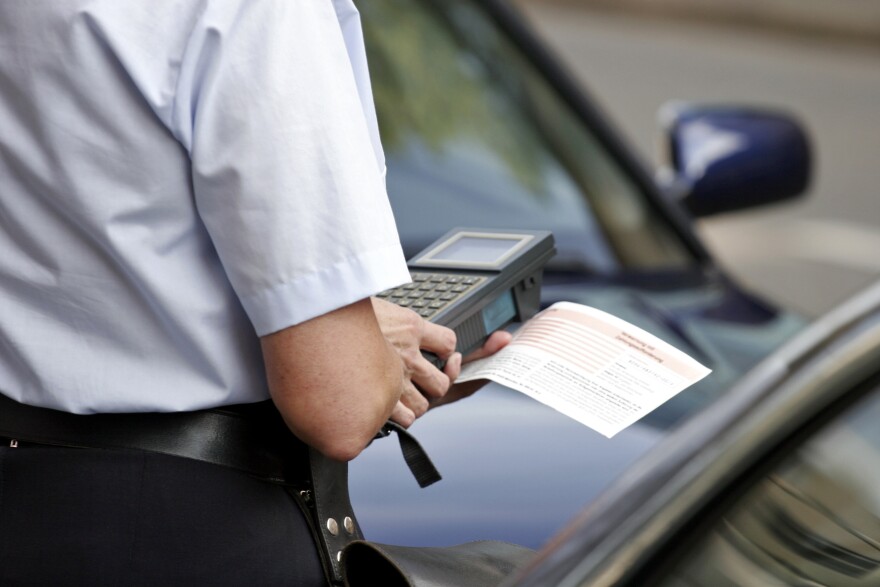A federal judge in Bay City has ruled that local parking authorities cannot employ the long-established use of chalk marks on tires to determine whether a vehicle has sat in a space for too long. The decision says that violates the unreasonable search clause of the U.S. Constitution.
“As a result, Defendants’ practice of suspicion-less chalking will be declared unconstitutional, and they will be ordered to pay nominal damages for each instance of chalking,” U.S. District Court Judge Thomas Ludington wrote in his opinion.
Ludington rejected arguments that the system should be allowed because the fines are small and drivers are accustomed to complying with the chalking system.
Philip Ellison is the attorney for the plaintiffs in the class-action case. He said none of that should matter when a constitutional right is at stake.
“And so the outcome of this case is very important, I think, because it establishes the idea that just because you can doesn’t mean you should and just because you’ve always done it, doesn’t mean it’s constitutional,” he told Michigan Public Radio.
The main issue is whether Saginaw parking enforcement’s chalk system was allowable without getting a warrant.
Saginaw officials did not respond to requests for comment. The facts laid out in the opinion say the city has not used chalking in parking enforcement since 2019.
But some communities still use chalking, and Matt Bach with the Michigan Municipal League said the issue has been followed by local governments across the state.
“So they’ve been preparing their staff with the latest information as far as how to regulate parking in their communities” he told Michigan Public Radio. “So, I’m sure they’ll be creative in coming up with other ways to determine if a car has parked in a space for too long.”
This is probably not the final word in the case. That’s because the judge rejected the plaintiffs’ request for a refund of parking fines. Instead, Ludington ordered the city pay $1 for each instance of chalking.
Both sides in the case agreed it would be almost impossible to tally up every time an enforcement officer – unconstitutionally, as it turns out – marked a tire.




